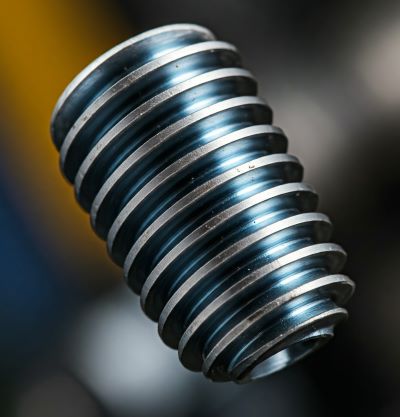BSP (British Standard Pipe) screw threads are a crucial component in pipe fittings, ensuring secure and leak-proof connections. Understanding the nuances of thread standards is essential for professionals and DIY enthusiasts alike, as it guarantees the integrity of plumbing systems.
The choice of thread standard directly impacts the safety and efficiency of a pipe system. Incorrect threads can lead to leaks, pressure loss, and even structural damage. BSP threads, in particular, have gained widespread recognition for their reliability and compatibility in various applications.
The Basics of BSP Screw Threads
What is BSP?
BSP, or British Standard Pipe, refers to a standardized system of threaded connections used in pipes and fittings. It has become a global standard, particularly prevalent in countries that were once part of the British Empire.
BSP threads are characterized by their distinctive thread profile, which ensures a secure and reliable seal when properly assembled. They are designed to work with specific types of pipe fittings, providing a consistent and interchangeable connection.
Understanding BSP Terminology
To fully grasp BSP threads, it’s essential to familiarize oneself with key terms:
➡️ BSPP (Parallel): This refers to threads with a constant diameter throughout their length, providing a secure fit without taper.
➡️ BSPT (Tapered): These threads have a taper that creates a tight seal under pressure, often used in applications where vibration or movement is expected.
BSP Thread Types: BSPP vs. BSPT
Parallel (BSPP) Threads: Characteristics and Applications
BSPP threads are characterized by their consistent diameter, which allows for a snug fit between the male and female parts. They are commonly used in applications where a reliable seal is required without excessive force. Examples include domestic plumbing and industrial systems with low to moderate pressure.
Tapered (BSPT) Threads: Ensuring Tight Seals
BSPT threads have a tapered design, with the male part being larger at the end. This taper creates a tight seal under pressure, making BSPT suitable for applications where vibration, movement, or higher pressures are involved. They are often found in hydraulic and pneumatic systems, as well as industrial machinery.
When to Use BSPP vs. BSPT in Pipe Fittings
The choice between BSPP and BSPT depends on the specific requirements of the application. BSPP is generally preferred for simpler connections with lower pressure, while BSPT is suitable for applications demanding a tighter seal under more demanding conditions.
What Sets BSP Threads Apart from Other Standards?
BSP vs. NPT: The Key Differences
While BSP and NPT (National Pipe Thread) may appear similar, they have distinct differences in their thread profiles, angles, and compatibility. Understanding these differences is crucial for ensuring correct fittings and avoiding leaks.
BSP vs. ISO Metric Threads
BSP and ISO metric threads also have variations in their pitch and angle. ISO metric threads are more commonly used in Europe and other regions that have adopted the metric system.
Identifying Thread Standards: How to Tell Them Apart
There are several methods to identify thread standards, including measuring the thread pitch, angle, and profile. Additionally, specialized tools and gauges can be used for accurate identification.
Common Applications of BSP Screw Threads in Pipe Fittings
Domestic and Commercial Plumbing
BSP threads are the standard for water and gas pipe systems in many countries, providing reliable connections for both residential and commercial applications.
Industrial Use in Hydraulic and Pneumatic Systems
In industrial settings, BSP threads are essential for ensuring the integrity of high-pressure hydraulic and pneumatic systems. They offer a secure and dependable means of connecting components.
Oil and Gas Industry
The oil and gas industry relies heavily on BSP threads for critical applications, where safety and reliability are paramount. They are used in pipelines, valves, and other equipment to prevent leaks and maintain operational efficiency.
Automotive and Machinery
BSP threads find applications in various industries, including automotive and machinery. They are used in components such as fuel lines, brake systems, and mechanical assemblies.
Advantages of Using BSP Screw Threads
Ease of Installation
BSP threads are designed for easy installation, requiring minimal effort to assemble and disassemble connections.
Compatibility Across Global Markets
The widespread adoption of BSP threads ensures compatibility across global markets, making it a convenient choice for international projects.
Reliability in Sealing Under High Pressure
BSP threads are known for their ability to create reliable seals under high pressure, preventing leaks and ensuring system integrity.
Durability and Longevity
BSP fittings are typically made from durable materials such as brass or stainless steel, ensuring a long lifespan and resistance to corrosion.
Choosing the Right BSP Threaded Fitting for Your Needs
Material Considerations: Brass, Stainless Steel, and More
The choice of material for BSP fittings depends on the specific environment and application. Brass is a common choice for general-purpose use, while stainless steel offers superior corrosion resistance in harsh conditions.
Sizing Guidelines: Understanding BSP Measurements
To select the correct BSP fitting, it is essential to understand the sizing guidelines, including thread size, pitch, and diameter. Accurate measurements are crucial for ensuring a proper fit and preventing leaks.
Pressure and Temperature Ratings
BSP fittings are available in various pressure and temperature ratings to accommodate different applications. It is essential to select fittings that can withstand the operating conditions of your system.
Avoiding Common Mistakes in BSP Fitting Selection
To avoid common mistakes, it is recommended to consult with professionals or refer to BSP thread standards for guidance. Proper selection and installation are essential for ensuring the long-term performance and safety of your pipe system.
Conclusion
BSP screw threads have earned their reputation as a reliable and versatile component in pipe fittings. Their unique characteristics, ease of installation, and global compatibility make them a preferred choice for a wide range of applications.
By understanding the fundamentals of BSP threads and selecting the appropriate fittings, you can ensure the integrity and efficiency of your pipe systems.
Post time: Oct-08-2024


